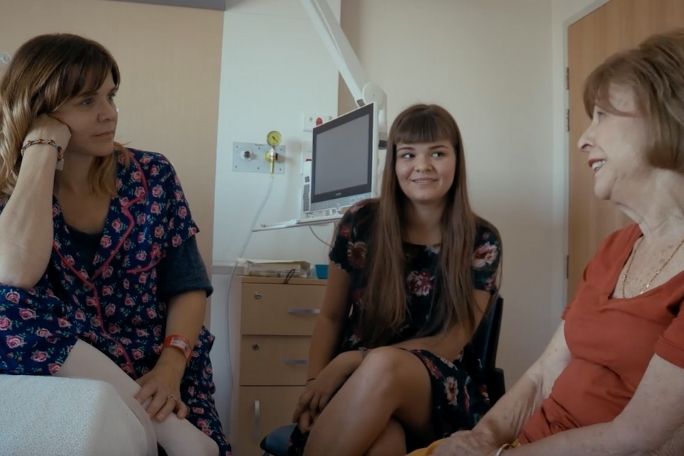Lesson summary
In this lesson, students are introduced to the topic of organ and tissue donation and transplantation. They establish their prior knowledge about organ and tissue donation through a group brainstorming activity, then watch a short clip from the documentary film Dying to Live. Students reflect on the clip and frame two questions they have about the topic, which they then use to direct their independent research. Students will share what they discover with their peers in a group discussion.
Learning intentions:
Students will...
- understand more about organ and tissue donation
- be able to frame questions about a challenging issue
- be able to use an online source to find answers to their questions
- be able to present information about organ and tissue donation to their peers
Success criteria:
Students can...
- know about organ and tissue donation and transplantation
- read and comprehend information from an online source
- present information about a new topic with clarity
Lesson guides and printables
Curriculum links
Select your curriculum from the options below.
Lesson details
Curriculum mapping
Australian curriculum content descriptions:
Year 9 English:
- Listen to spoken texts constructed for different purposes, for example to entertain and to persuade, and analyse how language features of these texts position listeners to respond in particular ways (ACELY1740)
- Use interaction skills to present and discuss an idea and to influence and engage an audience by selecting persuasive language, varying voice tone, pitch, and pace, and using elements such as music and sound effects (ACELY1811)
Year 10 English:
- Identify and explore the purposes and effects of different text structures and language features of spoken texts, and use this knowledge to create purposeful texts that inform, persuade and engage (ACELY1750)
- Use organisation patterns, voice and language conventions to present a point of view on a subject, speaking clearly, coherently and with effect, using logic, imagery and rhetorical devices to engage audiences (ACELY1813)
Syllabus outcomes: EN5-2A, EN5-3B, ENLS-10B, ENLS-12C, ENLS-13C
General capabilities: Literacy, Ethical understanding
Relevant parts of Year 9 achievement standards: Students evaluate and integrate ideas and information from texts to form their own interpretations. They make presentations and contribute actively to class and group discussions, comparing and evaluating responses to ideas and issues.
Relevant parts of Year 10 achievement standards: Students explain different viewpoints, attitudes and perspectives through the development of cohesive and logical arguments. They make presentations and contribute actively to class and group discussions, building on others’ ideas, solving problems, justifying opinions and developing and expanding arguments.
Unit of work: Dying to Live – English – Year 9 & 10
Time required: 60 mins
Level of teacher scaffolding: Medium – facilitate class discussion
Resources required
- Student Worksheets – one copy per student
- Device capable of presenting a video to the class
- Sticky notes (enough for 4–5 per student)
- Web-enabled device (one per pair of students)
- Butcher’s paper and markers
Skills
- Communication
- Creativity
- Digital literacy
- Ethical understanding
- Empathy
Additional info
Dying To Live is a documentary feature film examining organ and tissue donation and transplantation in Australia through seven different stories highlighting the social, physical and emotional effects of being on the organ donor waiting list. The film also aims to dispel myths about organ and tissue donation while encouraging family conversations so that family members are aware of their loved ones’ donation intentions. Find out how to screen or view the film here.


Welcome back!
Don't have an account yet?
Log in with:
Create your free Cool.org account.
Many of our resources are free, with an option to upgrade to Cool+ for premium content.
Already have an account?
Sign up with:
By signing up you accept Cool.org's Terms and Conditions(Opens in new tab) and Privacy Policy(Opens in new tab).